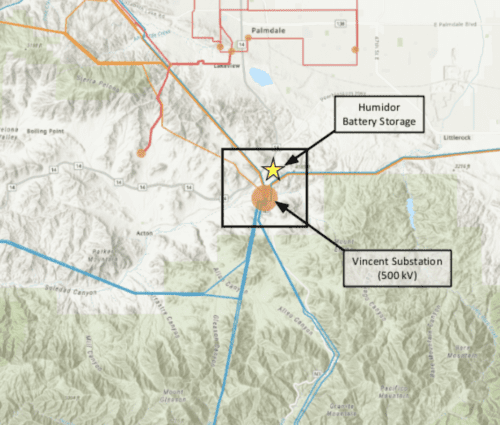
LA County Board of Supervisors Meeting: Unanimous Approval for Humidor BESS – 26 Nov 2024
The Humidor BESS project received unanimous approval by the LA County Board of Supervisors on 26 November 2024 with Clean Coalition support.
LA County Board of Supervisors Meeting
26 November, 2024
Kenneth Hahn Hall of Administration:
500 West Temple St., Los Angeles CA 90012
- The meeting’s agenda is available in PDF format.
- The Humidor BESS support letter is available in PDF format.
- The Humidor BESS presentation is available in PDF and PPT format.
On November 26, 2024, the Los Angeles County Board of Supervisors unanimously approved the Humidor Battery Energy Storage System (BESS)—a significant milestone in advancing California’s renewable energy transition.
The Humidor BESS offers a range of broader benefits. A support letter, collaboratively developed by the Clean Coalition, NRDC, Climate Resolve, Permacity Foundation, and Elders Climate Action, played a vital role in securing unanimous approval and outlines these additional advantages.
To further highlight the project’s transformative potential, the Clean Coalition developed a presentation showcasing how the Humidor BESS will enhance renewable energy integration and grid resilience across the Los Angeles region.
At the meeting, Los Angeles County Fire Chief Anthony Marrone expressed full confidence in the safety of BESS during his testimony. His remarks are recorded under Item 65 in the meeting transcript.
Strategically located near the massive Vincent Substation in northern Los Angeles County, the Humidor BESS is designed to provide numerous location-specific benefits, including:
- Enhancing a key intersection of the grid by reducing grid congestion and improving grid reliability.
- Maximizing the delivery of renewable energy and minimizing the use of gas-fired generators.
- Utilizing disturbed land in an industrial zone and ensuring that fewer deployments of future BESS will be needed on pristine lands.
